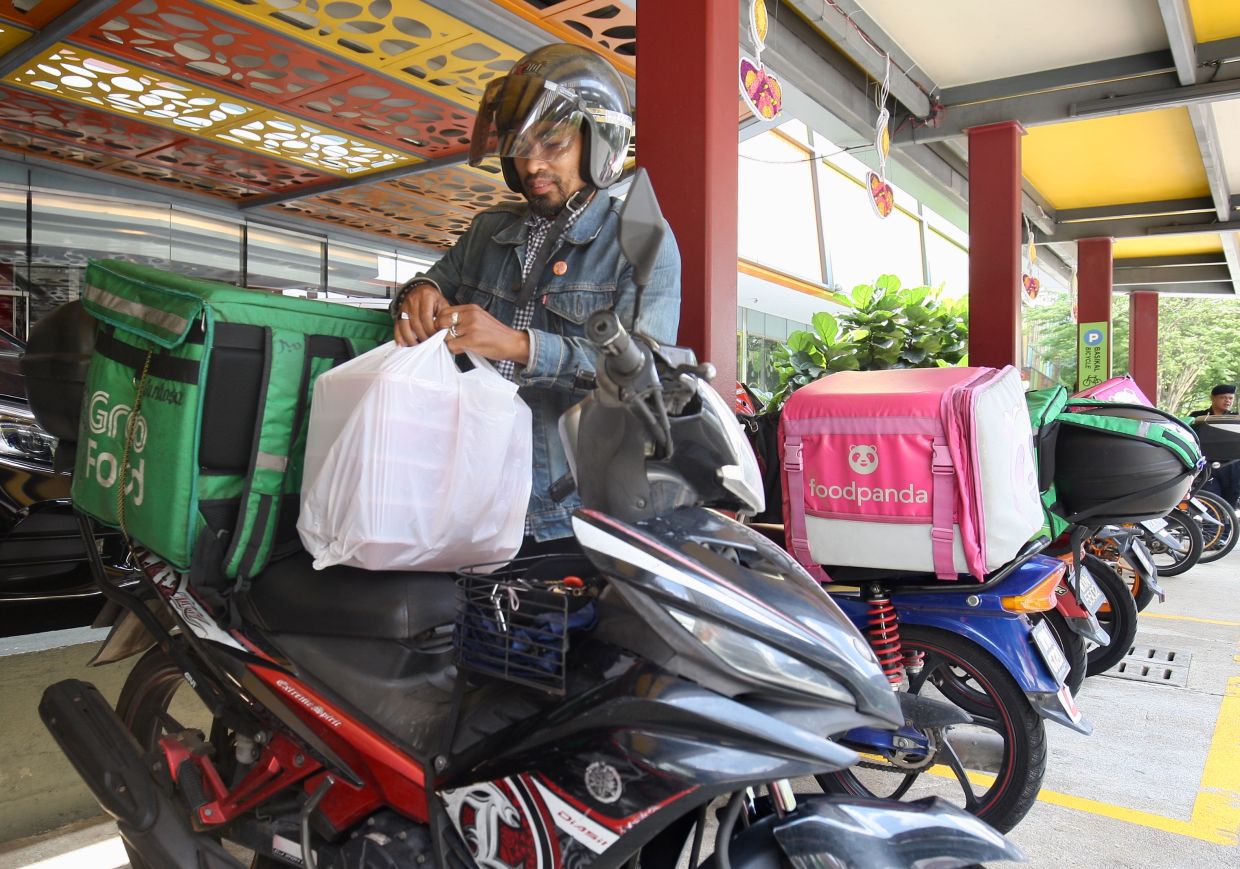A CONSUMERS group has shot down a call to tackle instances of cross-contamination during online food deliveries by having new guidelines, saying existing laws are sufficient in getting eateries to toe the line.
The Malaysia Consumers Movement (MCM) was responding to veteran consumer advocate Datuk Seri Dr Jacob George’s suggestion for a comprehensive regulatory framework to regulate GrabFood and FoodPanda deliveries.
“We have comprehensive laws regulating food handling in restaurants and it should, therefore, continue to be the responsibility of restaurants to ensure food safety requirements are followed.
“This includes the safety of packaging before food is picked up and delivered to customers by riders,” MCM secretary-general Sukhdave Singh told FocusM.

If regulations are to be imposed, Sukhdave added, they should focus on the cleanliness of the “backpacks” or delivery bags used by riders.
“The condition of food delivered, and its quality and safety, are two different aspects, with the latter being the sole responsibility of the restaurants concerned.”
On Tuesday (July 19), Jacob told FocusM stringent guidelines were needed to force service providers to train their riders on food hygiene and prioritise cleanliness at all times – or be penalised.
The Consumers Association of Subang and Shah Alam (Cassa) president backed his call by citing complaints received by his group about the hygiene of riders, their motorbikes and backpacks, and spilled or contaminated food orders.
He also noted that food deliveries are often not properly sealed, and do not meet hygiene expectations set in laws like the Food Act and the Food Hygiene Regulations 2009 or the Hazard Analysis Critical Control Point (HACCP) food safety management system.
Sukhdave said restaurants – not riders – are responsible for how food is packaged for deliveries, and that riders should only be focused on delivering their orders as quickly as they can.
Restaurants, he said, must always ensure that food is properly packed to minimise instances of riders coming into contact with the food or spillage in order to prevent cross-contamination.
“Not their job”
Asking riders to undergo training and be certified food handlers, on the other hand, is also assuming responsibility of the restaurants as riders do not handle or touch the food they deliver.
“We have seen many times at restaurants how riders wait for their deliveries to be ready,” Sukhdave said.
“Once they are ready, the riders immediately pick them up and go, only handling the single-use plastic within which food containers are placed.”
Sukhdave added that MCM has only received food poisoning complaints linked to the restaurants preparing the meals, not due to delivery riders.
“One would ask the Ministry of Health (MOH) how many food poisoning complaints have been received directly caused by delivery riders thus far,” he said.
Too many regulations, meanwhile, will also defeat the gig economy, Sukhdave added.
“The gig economy has offered convenience to people, better market access to restaurants and directly created jobs. Regulations, thus, will only hinder its growth,” he said.
If people want to push for any change, it would be to require delivery riders to be safe on the road so they can protect themselves and not endanger other road users at the same time.
“For example, you see many of them riding in flip-flops – that’s so dangerous,” Sukhdave said. “Delivery companies must ensure high-level safety standards of their drivers.”
The condition of the riders’ carriage bags can also be improved, he said. – July 21, 2022









